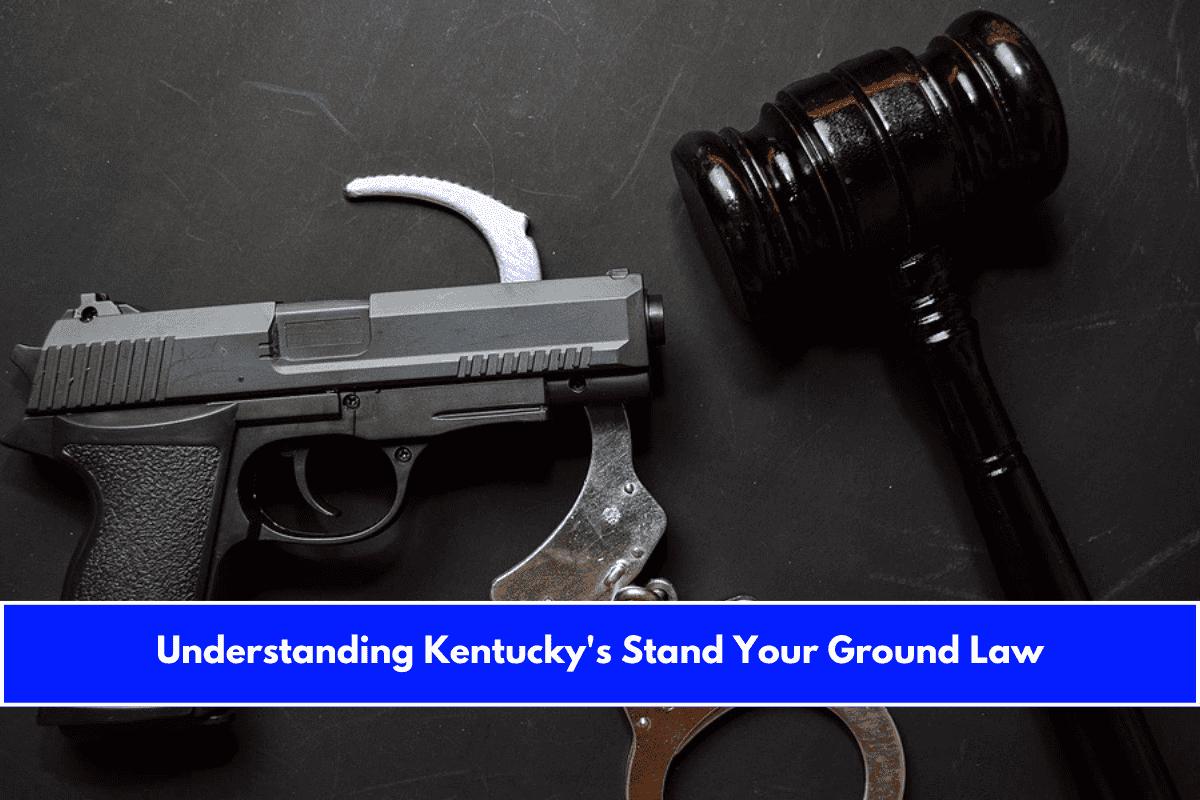Kentucky’s Stand Your Ground law is a significant component of the state’s self-defense framework, shaping when and how individuals can legally use force to protect themselves or others. Enacted in 2006, this law removes the traditional “duty to retreat” in many situations, allowing individuals to stand their ground when facing an imminent threat.
Key Provisions of Kentucky’s Stand Your Ground Law
No Duty to Retreat
- In Kentucky, if you are in a place where you have a legal right to be-such as your home, workplace, vehicle, or any public space-you are not required to retreat before using force, including deadly force, in self-defense.
- This is a departure from previous laws that required individuals to attempt to avoid confrontation by retreating if safely possible.
When Deadly Force Is Justified
- The law allows the use of deadly force only when there is a reasonable belief that it is necessary to prevent imminent death, serious physical injury, kidnapping, rape, sexual assault, or a forcible felony.
- Deadly force is not justified for the mere protection of property or against non-threatening trespassers.
Castle Doctrine vs. Stand Your Ground
- The Castle Doctrine specifically applies to defending your home or occupied vehicle, presuming that force is justified if someone unlawfully enters and poses a threat.
- Stand Your Ground extends this principle beyond the home, covering any place you are legally allowed to be.
Defense of Others
- The law also allows you to use force to defend others if you reasonably believe they are facing an immediate threat.
Legal Protections and Burden of Proof
- Presumption of Reasonableness: If force is used against someone unlawfully entering your home or vehicle, the law presumes you acted reasonably.
- Burden on Prosecutors: In self-defense cases, the burden is on the prosecution to prove that the defendant did not act in self-defense, rather than requiring the defendant to prove their actions were justified.
- Investigation Limitations: Kentucky law restricts law enforcement’s ability to arrest someone claiming self-defense under this law unless there is probable cause to believe the force was unlawful.
Important Limitations
- Not a License for Violence: Stand Your Ground does not allow the use of deadly force in response to non-violent trespassing or minor disputes.
- Reasonable Belief Required: The threat must be immediate and credible; misjudging a situation can lead to criminal charges.
Summary Table
| Situation | Duty to Retreat? | Deadly Force Allowed? |
|---|---|---|
| Home/Vehicle (Castle Doctrine) | No | Yes, if threat is present |
| Public Place (Stand Your Ground) | No | Yes, if threat is present |
| Against Non-Threatening Trespasser | No | No |
| To Protect Property Only | No | No |
Kentucky’s Stand Your Ground law allows individuals to use force-including deadly force-without first attempting to retreat, as long as they are in a place where they have a legal right to be and reasonably believe they face an imminent threat of serious harm.
The law offers broad protections for self-defense but does not justify violence against non-threatening individuals or for the sole protection of property. Understanding these boundaries is crucial for anyone considering the use of force in self-defense in Kentucky.
Sources:
- https://en.wikipedia.org/wiki/Stand-your-ground_law
- https://www.dickmanlawoffice.com/uncategorized/kentuckys-stand-your-ground-law-self-defense-and-home-protection/
- https://crateclub.com/blogs/loadout/does-kentucky-have-a-self-defense-law-understanding-your-rights
- https://giffords.org/lawcenter/state-laws/stand-your-ground-in-kentucky/











Leave a Reply